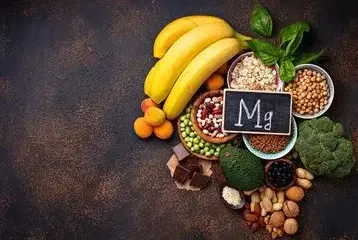Toddler Feeding
Recommended Vitamin C Intake for Young Children

Vitamin C plays a key role in children’s growth, development, and immune support. A proper Vitamin C intake ensures strong gums, healthy skin, and better wound healing. Although most children get enough vitamin C through diet, some kids may need extra attention to avoid deficiencies. Let’s explore the essential facts about Vitamin C intake children should maintain for optimal health.
Why Vitamin C Matters for Kids
Vitamin C helps form red blood cells, bones, and body tissues. It also protects against infections and supports iron absorption.
It strengthens blood vessels, keeping bruises to a minimum. Additionally, it promotes healing for cuts and scrapes, making it vital in childhood development.
Daily Recommended Vitamin C Intake
How Much Do Kids Need?
Children need different amounts based on their age. Here are the daily guidelines:
- Ages 1 to 3 years: 15 milligrams (mg)
- Ages 4 to 8 years: 25 mg
These levels cover their basic health needs. Most children meet these levels by eating fruits and vegetables regularly.
Signs Your Child May Need More
Picky eaters might not get enough. Also, exposure to cigarette smoke increases the need for more vitamin C. If you’re unsure, consult your child’s doctor. They can suggest dietary changes or supplements if necessary.
Top Food Sources of Vitamin C
Fruits and Vegetables That Are Rich in Vitamin C
Brightly colored produce usually contains high levels of this important nutrient. Here are excellent choices for your child’s diet:
- Guava (1/4 cup): 94 mg
- Orange juice (1/2 cup): 50 mg
- Red bell pepper (1/4 cup): 47.5 mg
- Kiwi (1/4 cup): 41 mg
- Papaya (1/4 cup): 35 mg
- Broccoli (1/2 cup): 51 mg
- Strawberries (3 pieces): 21 mg
These options not only taste good but also provide the necessary nutrients. Introduce them in fun, colorful meals.
Can Kids Get Too Much Vitamin C?
Understanding Safe Limits
Although vitamin C is water-soluble, excess amounts can cause discomfort. Too much may lead to nausea, diarrhea, or kidney stones.
Here’s what counts as a megadose:
- Ages 1 to 3: Over 400 mg per day
- Ages 4 to 8: Over 650 mg per day
Watch out for adult chewable tablets. They may contain more than kids need. Always follow dosage guidelines closely.
When Supplements Might Be Necessary
Special Cases for Supplement Use
Some children, especially those with sensory sensitivities or on the autism spectrum, may struggle with certain foods. For them, supplements can help.
However, supplements aren’t always necessary. The American Academy of Pediatrics recommends them only when advised by a healthcare provider.
If you have concerns about Vitamin C intake children need in your household, talk to a pediatrician before adding supplements.
Conclusion
Getting enough vitamin C helps children grow strong and stay healthy. Offer a variety of fruits and vegetables each week. Avoid megadoses, but make sure their diet includes reliable vitamin C sources. When in doubt, speak with your doctor.












